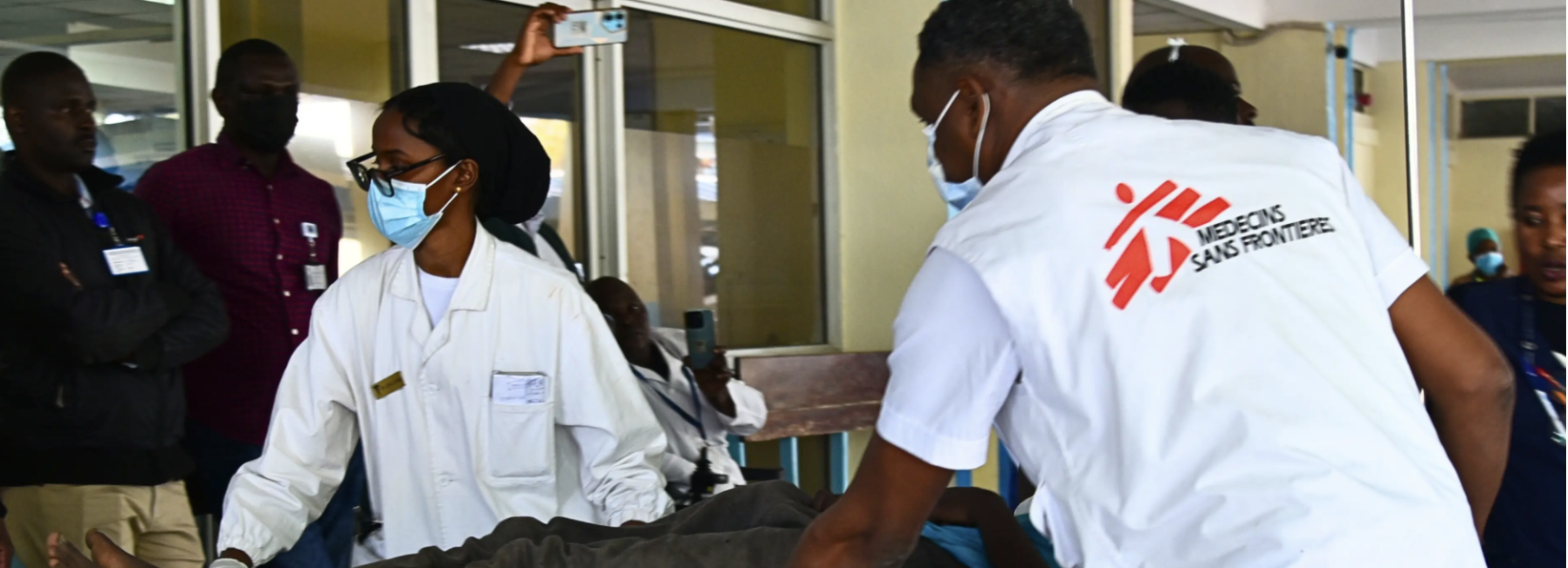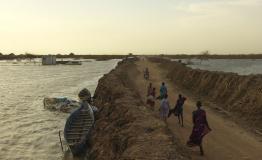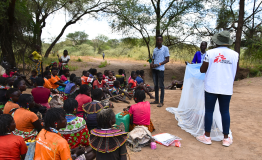Abbas Bahola, a nurse with Médecins Sans Frontières/Doctors Without Borders (MSF), currently works at our project in Nairobi Eastlands, a low-income section of the Kenyan capital. The project provides 24-hour ambulance services, a trauma room, and care for survivors of sexual violence. This setup also enables the team to respond to mass casualties in wider Nairobi.
Here he explains the recent response to the protests, where the MSF team contributed to the emergency response efforts.
For the recent protests, we made plans to dispatch our ambulance and medical team, we made sure we had additional staff ready to respond to an influx of patients, and arranged referral possibilities in place for people who need more advanced medical care.
On the first day, our ambulances went to the Central Business District (CBD), to join other actors where a medical post was set up by the Nairobi Emergency Operating Coordination Centre (EOC) at Jamia Mosque, close to where the protests were due to take place. During these situations, our role is primarily to stabilize patients. We treat and discharge those with less severe injuries. For more severe cases, we stabilize the patients and refer them in our ambulances to Mama Lucy hospital or Kenyatta National Hospital.
As the access to Jamia mosque became more complicated our team shifted to Holy Family Basilica (another location in CBD where medical response was deployed) and could assist the medical teams in treating both protesters and police officers.
Most of the patients we saw had fractures, wounds, soft tissue injuries, and a few gunshot wounds, both from rubber and live bullets.
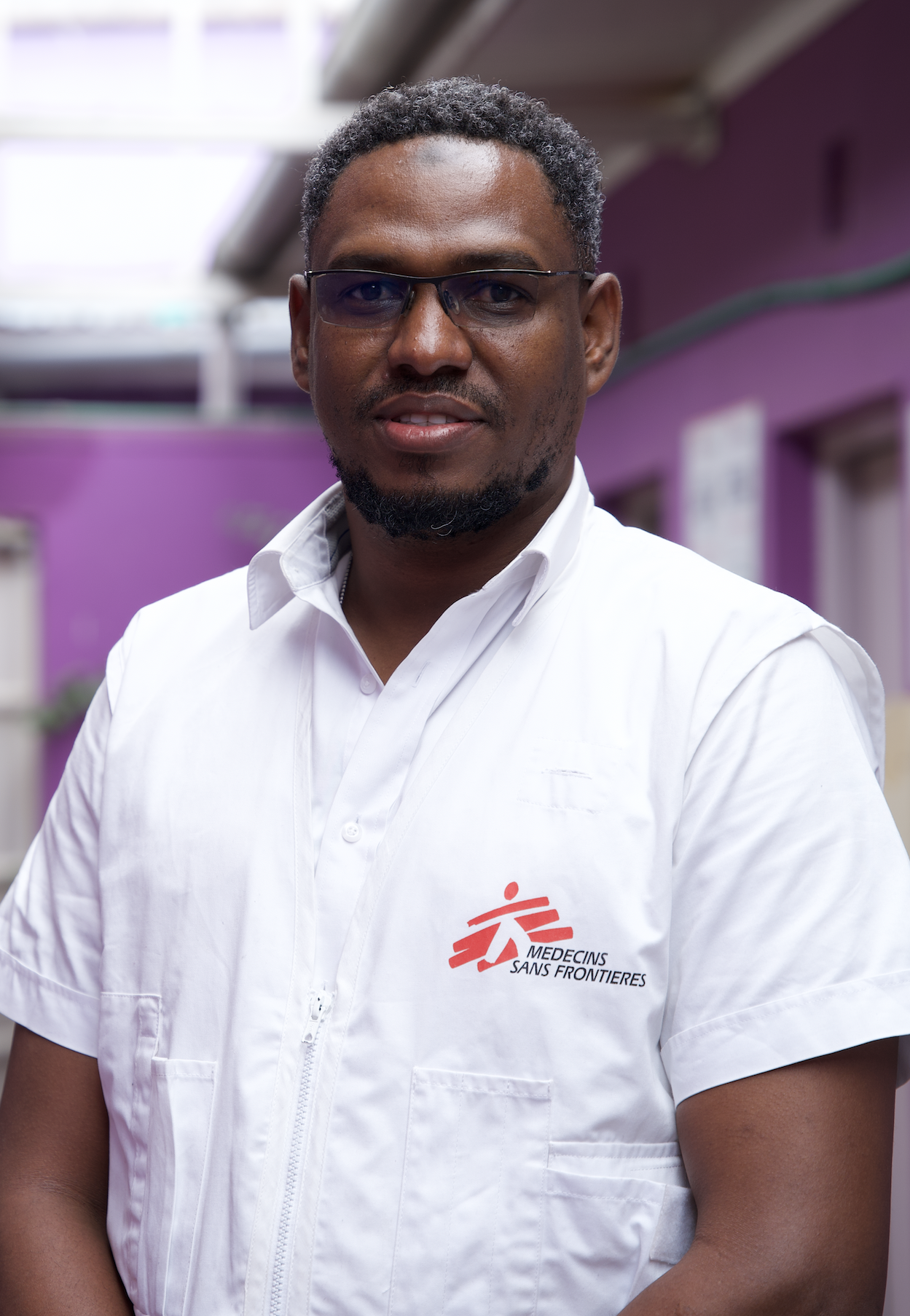
We treat and discharge those with less severe injuries. For more severe cases, we stabilize the patients and refer them in our ambulances to Mama Lucy hospital or Kenyatta National Hospital.Abbas Bahola
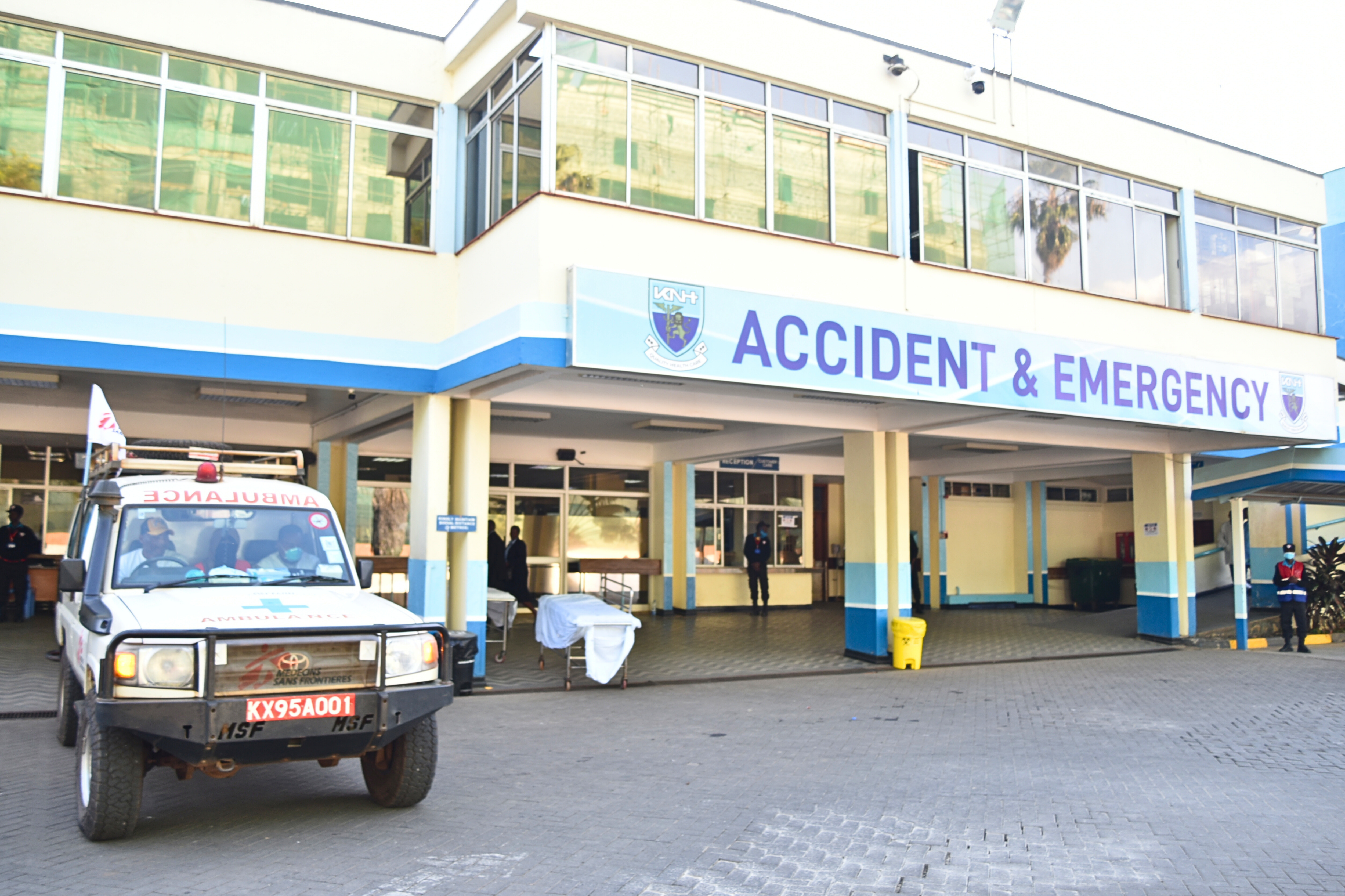
When it was safe to move, our ambulance picked up 2 injured patients who needed further care in a higher facility. On its way to Kenyatta National Hospital, the ambulance was attacked by some rowdy crowds. Our team and patients were shaken, and one staff got physically injured, they had to find a safe place to wait until they could be taken to safety. Unfortunately, this led to a delay in the care of the two patients who were on board the ambulance.
On the subsequent days, we upgraded the response through supporting the triage at Kenyatta National Hospital - where we prioritized patients based on their injuries and the urgency of their need for care. In the first two days, we triaged 71 patients. At the same time, our ambulances continued working to respond as needed.
MSF will continue to respond to all mass casualties in Nairobi and to collaborate with the other actors to improve the response, we do so driven by our commitment to humanity. We do not take sides and provide medical care to everyone who needs it, we take the opportunity to call on all parties to observe the medical ethics and to facilitate access to the medical responders to be able to save lives and reduce suffering .
